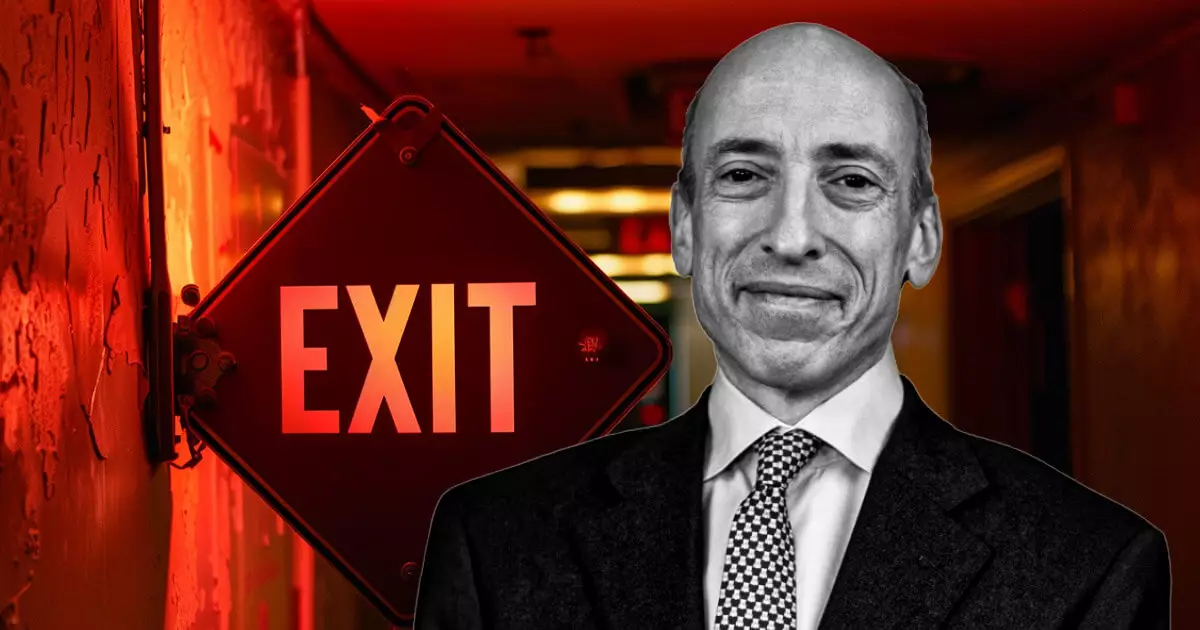Gary Gensler’s announcement that he will step down from his role as Chairman of the U.S. Securities and Exchange Commission (SEC) on January 20, 2025, marks a significant moment in financial regulatory history. His tenure, which began in April 2021, was characterized by a focus on investor protection, market integrity, and stringent oversight of the rapidly evolving cryptocurrency landscape. Gensler’s departure coincides with the inauguration of President-elect Donald Trump, suggesting a potential shift in regulatory philosophy at the Commission, especially with a divided leadership landscape.
Reflecting on his time at the SEC, Gensler emphasized the commission’s mission-driven ethos, crediting its staff as essential public servants committed to safeguarding investor interests and ensuring robust market operations. His comments reveal a deep appreciation for the agency’s role in preserving the integrity of capital markets, which he believes must remain the most competitive globally. This sentiment is critical as discussions about regulatory frameworks for emerging technologies, particularly cryptocurrencies, continue to gain momentum.
During Gensler’s leadership, the SEC took aggressive action against various crypto firms, becoming a prominent figure in the enforcement arena. Under his watch, major platforms like Binance, Coinbase, and Kraken faced lawsuits for allegedly operating without proper registration as securities brokers. These actions underscore a significant regulatory thrust aimed at imposing stricter compliance standards within the cryptocurrency sector, reflecting Gensler’s view that many digital assets qualify as securities. The implications of this regulatory environment are profound, as it sets the tone for how future innovations in digital finance will be monitored.
Interestingly, Gensler’s tenure also saw the approval of spot Bitcoin and Ethereum exchange-traded funds (ETFs), marking a turn in his previously skeptical position on these investment vehicles. Initially, he had argued that such products could lead to increased market manipulation. However, the pivotal ruling by the U.S. Court of Appeals for the District of Columbia Circuit in August 2023, which favored Grayscale’s efforts to convert its Bitcoin Trust into a spot Bitcoin ETF, highlighted a growing challenge to the SEC’s stance. The court’s decision criticized the Commission’s rationale for rejecting the ETF based on fears of market manipulation, deeming it arbitrary in nature.
As Gensler prepares to leave his position, the SEC faces an uncertain future, particularly regarding its regulatory approach toward cryptocurrencies and other innovations in finance. With President-elect Trump yet to announce a successor, the SEC remains split between Democratic and Republican commissioners, enhancing the potential for a shift in regulatory priorities. Several candidates are already being considered, each bringing unique perspectives on market regulation. As the digital finance landscape evolves, the upcoming leadership change could have lasting effects on how the SEC engages with emerging markets and protects consumers.
Gensler’s tenure has been a turbulent yet transformative period for the SEC, particularly in the context of cryptocurrency regulation. The implications of his policies and the upcoming leadership transition will influence the financial regulatory landscape for years to come. As stakeholders await the next chapter, the question remains: how will the SEC adapt to the challenges of an ever-changing market environment?


Leave a Reply